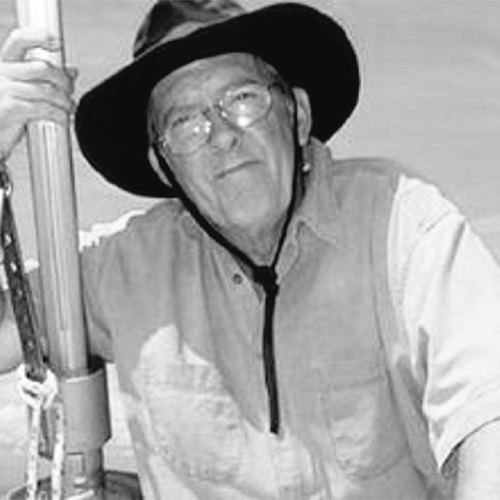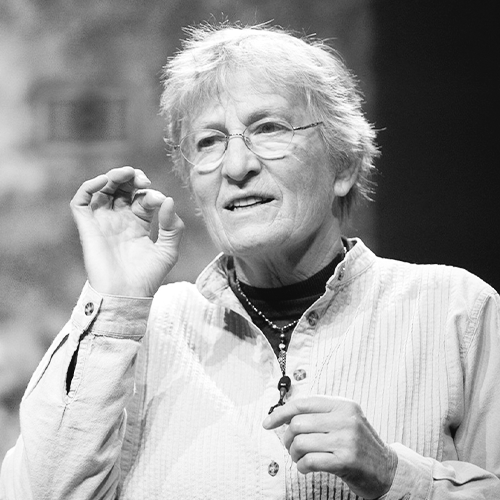Roger Payne (A.B., Harvard; Ph.D., Cornell) is founder and president of Ocean Alliance. He spent six years at Tufts University followed by 18 at Rockefeller University (51%) and the Wildlife Conservation Society (49%). Dr. Payne is best known for showing that prior to ship’s traffic noise, blue and fin whale calls were audible across oceans. His co-discovery of humpback whale songs (with Scott McVay) triggered the Save the Whales movement. Dr. Payne has led more than 100 expeditions to all oceans and studied every large whale species. His institute’s 5½-year circumnavigation collected samples from over 900 sperm whales (for measuring their pollutant/contaminant levels). His former students are world leaders in whale research, employing benign techniques (that they and Dr. Payne pioneered). He has written and presented television documentaries and co-directed the IMAX film, “Whales.” Dr. Payne’s awards include a MacArthur Fellowship, a knighthood in the Netherlands, a U.N. “Global 500” Award, an Emmy for best interview, and Oxford University’s Dawkins Prize.
Event Overview
Dr. Payne will present the discovery that whales sing as well as some of the events that have revealed the social and political impact on people in several nations. Katy Payne will present some of their findings about the whales' ever-changing songs, recorded by them and others over two decades in the North Atlantic and North Pacific Oceans.
Speakers
In 1959, Katy Payne received a Cornell B.A. in Music (with honors) and in Biology; since then her professional work and contributions have all stemmed from original discoveries at the intersection of these fields. Humpback whales sing long songs that change extensively, progressively, and rapidly with time – an example of non-human cultural evolution with endlessly fascinating details. Ms. Payne’s discovery of song-changing led to 15 years of recording and examining whale songs from the North Atlantic and Pacific Oceans, with many mysteries still unresolved. Ms. Payne changed direction in 1984 when she, with E M Thomas and W.R. Langbauer, discovered that elephants make powerful low-frequency calls, some of which are infrasonic and travel long distances. That finding led to two decades of field work in Africa focused on elephants’ acoustic communication. In 2004, she founded the Elephant Listening Project, in the Bioacoustics Research Program at the Cornell Lab of Ornithology, for purposes of research and conservation. Upon retiring from the Lab in 2006, Ms. Payne took up violin building, as a student of the Ithaca luthier Dylan Race.
Funding for all Ms. Payne’s recognized work came from grants — from the National Science Foundation, the National Geographic Society, World Wildlife Fund, the Wildlife Conservation Society (and its precursor the New York Zoological Society), the U.S. Fish & Wildlife Service, Conservation International, the Critical Ecosystem Partnership Foundation, the Park Foundation, the Harry Frank Guggenheim Foundation, the John Simon Guggenheim Foundation, and the International Fund for Animal Welfare — as well as from book writing (“Silent Thunder: In the Presence of Elephants,” [Simon & Schuster, 1998]). Along the way Ms. Payne received several honors and awards. More importantly, recognition of her findings has brought increased attention to the extraordinary and only half- understood animals whose wonderful calls and songs fill the forests, savannas, and oceans.
View Keynote by completing the form below.
You're Registered!


